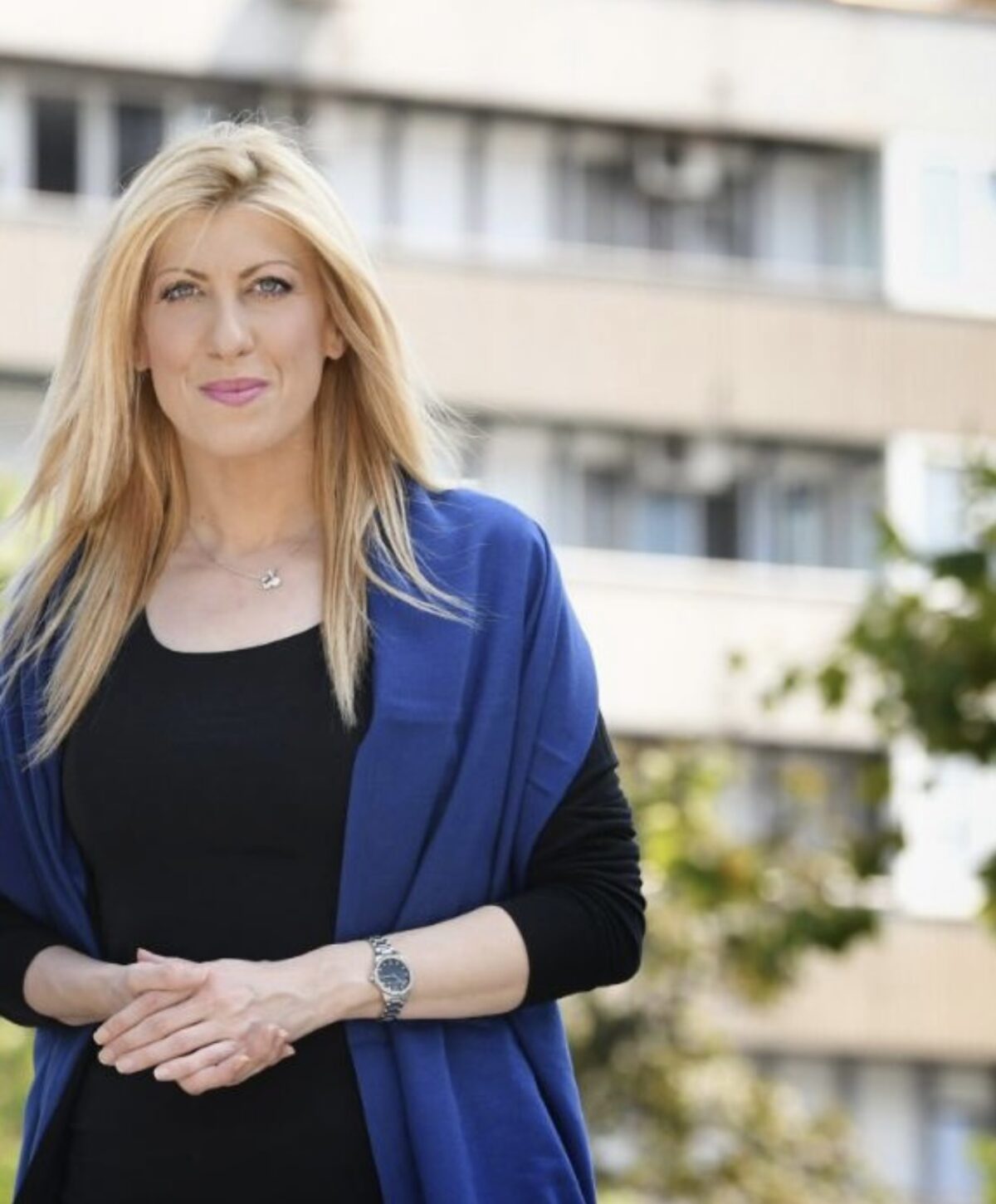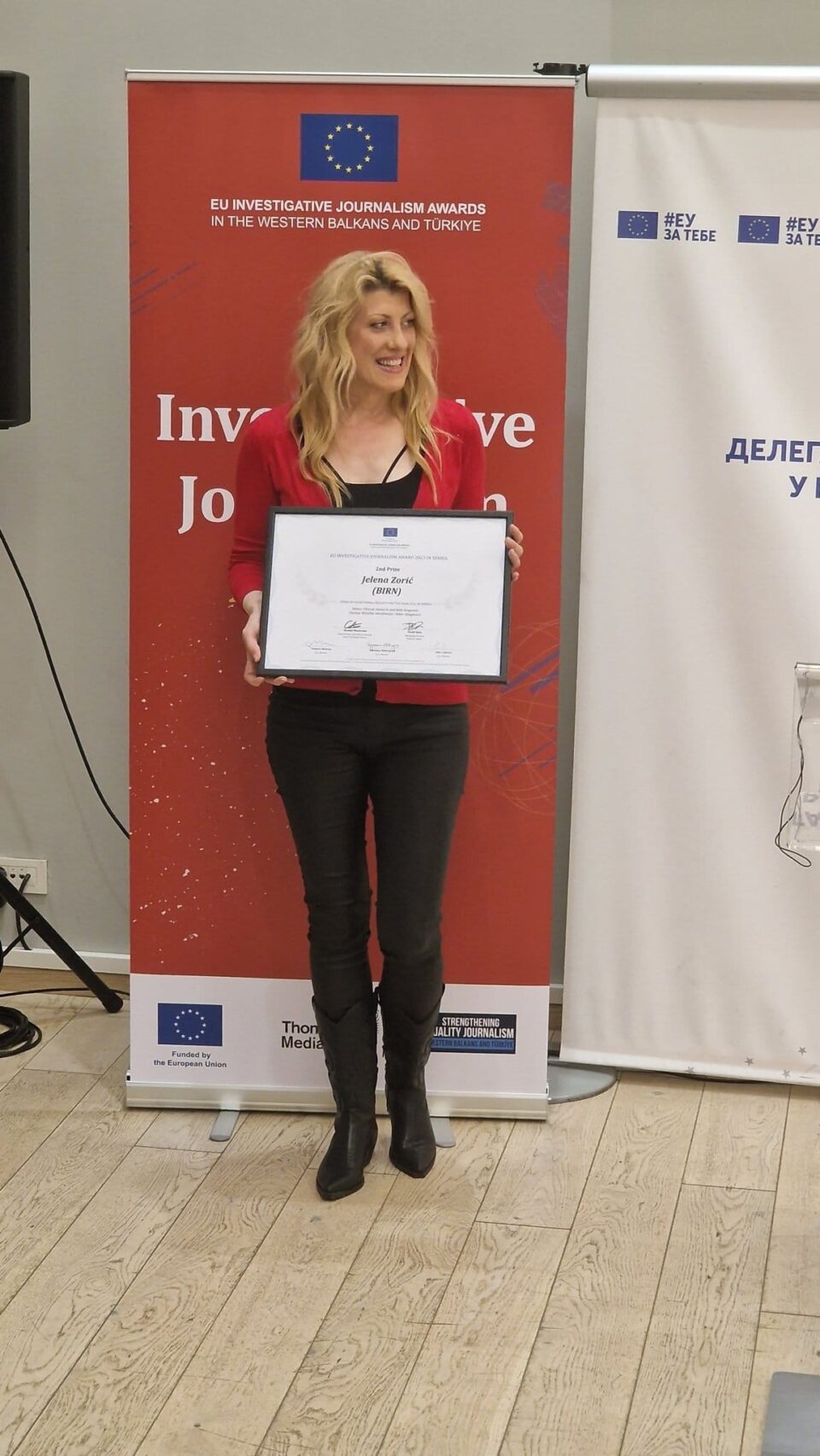Support comes primarily, often, and exclusively, from the public.

What is the current situation in the Serbian media like? Is there enough room and necessary support for independent, investigative journalists?
The situation in the Serbian media is very worrying as they are exposed to constant pressure. In highly politically polarized societies, the media easily become a propaganda machine. In Serbia, we have already experienced that the most influential media outlets work in the service of the government. Instead of providing information in the best interest of the Serbian public, they disseminate propaganda and even serve as a means of publicly demonizing all those unfit for the ruling party, without any critical review of the work of politicians in power or institutions that are constantly deteriorating. On the other hand, the so-called free media, often resisting the pressure of the authorities, are reporting in favour of the opposition parties and thus engage in another type of propaganda. In between them, there is a very small gap through which light shines – the gap that is investigative journalism. Support for investigative journalists comes primarily, often and exclusively, from the public. Working and research through information of public interest have become impossible, because the work that the state bodies do, which should provide journalists with access to such information, has become meaningless, while state institutions shamelessly fail to respond to anything important. All of this is taking place without any consequences whatsoever.
Taking into account the circumstances and pressures under which many independent journalists work, how challenging and dangerous is it to engage in investigative journalism in Serbia?
At a time when crime in Serbia is almost institutionalized, investigative journalism remains the only hope for whistleblowers or those who, instead of judicial justice, can only get an opportunity to publicly publish the truth through investigative media. In addition to media demonization and layoffs, people who work in institutions or are opposition members, i.e. the victims of our times, are also exposed to threats of arrests, staged court proceedings and even assassinations. For them, investigative and independent journalists remain the only symbol of democracy and an orderly society that we are all fighting for.
The only people who can protect journalists in Serbia are the journalists themselves
Media freedom in Serbia is one of the topics that is most often talked about in public discourse, but also on the political scene. Is this topic specific to Serbia as such or is it a trend that can be observed globally as well?
There is certainly a global problem when it comes to media freedom. First of all, politicians, secret services, organized criminal groups and even large corporations, some of which also own the media, all of them, as interest groups, want to control the media, that is, dissemination of information. Most want the public discourse to represent their view of things or their interest, while for real journalists the only valid interest is the public one. Journalists everywhere are exposed to pressures, to a greater or lesser extent, but in regulated countries, there are institutional mechanisms, such as an independent judiciary, which protect journalists, while in Serbia, instead of the institutions shedding light on your case, there is a threat of both media outlets and journalists disappearing overnight, never to be returned.
Can the public protect investigative journalists against the pressures they face? Is it a public interest and desire to participate in the fight for media freedom?
A good public reaction to a good research story is a wonderful satisfaction. In terms of pressure, the only people who can protect journalists in Serbia are the journalists themselves, with help also coming from other colleagues and journalist associations. The greatest protection against pressure for investigative journalists is for them to make peace with themselves and come to terms with the fact that they will continue to earn little even when they report the best stories, explore the most dangerous characters and receive the most awards, that, even when they are older, they won’t be able to buy a home or will live in a tiny studio apartment, that someday, due to unpaid bills, enforcement officers will come knocking on their door, that they will drive an old banger for car, that they should remain objective and persistent researchers even when they or their families are exposed to threats, when people spread lies about them on social media and try to discredit them in every possible way… And when, even after all of this, they muster enough strength to do a good story and when the public supports both the story and the journalist. This is an indication that there are many of us – journalists, viewers and readers – who care that we fight for media freedom.
What is the future of the Serbian media scene like? Is there a chance of things moving forward or not?
The future depends on us – journalists and the public. When things are this messed up there is always room for improvement and as long as there is one journalist left in Serbia, the word will spread.
When things are this messed up there is always room for improvement
You were recently one of the recipients of the EU Award for Investigative Journalism for your articles that covered cases of abuse in healthcare. What was it like to investigate this topic and receive recognition for writing about it?
It was a very difficult case. We, at BIRN, have worked with people who seek the help of psychiatrists, that is, people who belong to a sensitive group. They were also our sources and it was a challenge not to jeopardize the privacy of patients whose dignity and lives were threatened by the psychiatrist who misdiagnosed them with severe psychiatric disorders. I love the fact that I have received the EU award, but I love it even more that the First Basic Prosecutor’s Office in Belgrade reacted immediately when they read the story and initiated judiciary proceedings. This psychiatrist was accused of many wrongdoings thanks to the wealth of evidence that we provided and is now standing trial. This is a rare example of a fantastic reaction by state institutions.
Which article of yours are you the most proud of and which story was the most challenging to write?
I am proud of all my sources who contributed to the stories seeing the light of day, as well as all my colleagues with whom I have been working on those stories. The Jovanjica case is one of the most challenging stories we did. To quote the indictment, this is about an organized criminal group that, with the help of the police and civil and military secret services, grew plants that are used in the production of a drug called skunk, not far from Belgrade, in the largest complex of drug laboratories in Europe. The public’s reaction to the investigative journalist’s stories about Jovanjica is largely because the police inspectors who exposed the biggest drug corruption and judicial scandal in Serbia are still alive, considering that reliable sources confirmed that one of these police inspectors was a target for assassination.
What are your impressions of journalism generated by artificial intelligence (AI)? Is it a threat to the journalistic profession? Could it perhaps still serve as an auxiliary tool for a journalist, instead of completely replacing him?
When technology moves forward, it is pointless to resist it. That is why investigative journalists in Serbia already widely use various types of modern computer tools to enhance the quality of their work on investigative stories. Technology should serve man, not vice versa, and this is an approach that we should have toward AI.
By Mijat Kontić
